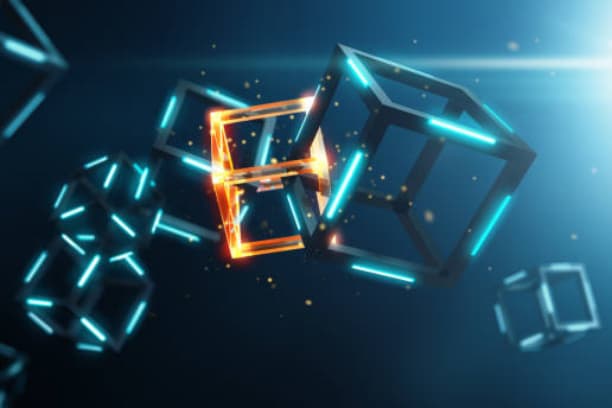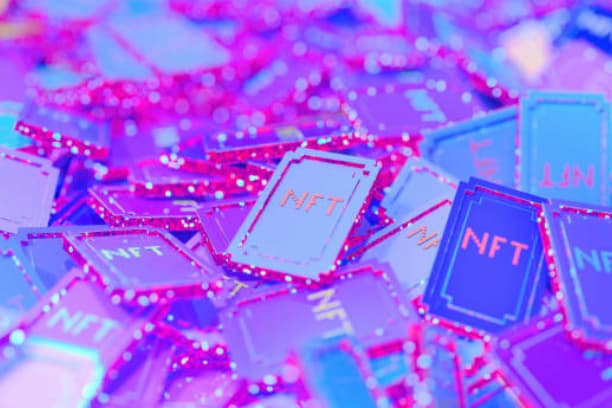Introduction to Bitcoin Trading Rules: From "Blockchain" to "Mining"
When we talk about Bitcoin, the most common things we hear about are blockchain technology and mining. These two concepts are at the heart of the workings behind Bitcoin, not only supporting its decentralized nature, but also making it a revolutionary digital asset. In this article, I'm going to walk you through the basic rules of Bitcoin trading, starting with the principles of blockchain, and then exploring how to do Bitcoin mining, so you'll have a comprehensive understanding of Bitcoin and how to get involved in the process of trading and profiting.

Blockchain Technology: The Foundation of Bitcoin
Blockchain is a distributed ledger technology that is the core operational foundation of Bitcoin and other cryptocurrencies. Simply put, blockchain is a decentralized database where all bitcoin transactions are recorded and each transaction is verified by multiple parties. The "block" of a blockchain is a unit of data. Whenever a transaction is completed, the relevant data will be packaged into blocks and linked to the previous block, thus forming a tamper-proof chain.
The biggest advantage of blockchain is its transparency and security. Because all transaction records are public and each transaction needs to be confirmed by most nodes in the network, it effectively prevents fraud from occurring. What's more, blockchain technology enables decentralization, which means there is no need to rely on any central authority to manage or control transactions, which is the biggest feature of cryptocurrencies such as Bitcoin.
How does blockchain ensure security?
Blockchain utilizes cryptographic algorithms to ensure the security of transactions. Each transaction is authenticated using public-private key encryption before it takes place, so that even if the transaction information is intercepted, unauthorized people cannot tamper with the content of the transaction. The decentralized structure of blockchain makes it possible for each transaction to be completed only after the consensus of the entire network, which reduces the risk of a single node being attacked.
Mining: How to generate Bitcoin?
In the world of Bitcoin, mining is the process of generating new Bitcoins and verifying transactions. This process not only requires a lot of computing power, but also involves solving complex mathematical puzzles. Every time a miner (or miner) solves a puzzle and successfully adds it to the blockchain, the miner is rewarded with Bitcoins. This process not only keeps the Bitcoin system running, but also allows the supply of Bitcoin to grow.
Fundamentals of Mining
The Bitcoin blockchain generates a new block every 10 minutes, and each new block requires miners to solve a Proof of Work problem. This is a difficult mathematical problem, and in order to ensure fairness and stability of block generation, the difficulty of this problem is adjusted according to the overall computing power of the network.

During the mining process, miners need a lot of computing resources to make guesses until they find a number that matches the criteria and add it to the blockchain. Once successful, the block is broadcast to the entire network and new Bitcoins are awarded to the miner.
Bitcoin trading: How to buy and sell Bitcoin?
Once you understand the mechanics of how Bitcoin works, the next step is to understand how to trade Bitcoin. Bitcoin trading is usually done through cryptocurrency exchanges, and these platforms provide easy-to-use interfaces that allow users to buy and sell Bitcoin conveniently.
Choosing an Exchange and Opening an Account
You need to choose a reliable exchange such as OKX, Binance, etc. These platforms offer a simple registration process and support various payment methods for deposits and withdrawals. During the registration process, you will need to provide identity verification to ensure the security and legitimacy of your transactions.
How to trade Bitcoin?
After opening an account on the exchange, you can buy and sell Bitcoin. Users can buy Bitcoin directly using fiat currencies (e.g., Taiwan Dollars, US Dollars) or trade with other cryptocurrencies. The exchange displays real-time quotes and allows users to set up Limit Orders or Market Orders as needed to trade at the desired price.
Trading Fees and Rebates
While most exchanges charge a trading fee, some platforms such as Ouyi offer rebate programs that allow users to receive a certain percentage of the handling fee back when trading. Such rebate programs can effectively reduce trading costs and increase revenue for active traders.
Risks and Precautions of Bitcoin Trading
Although Bitcoin trading is full of opportunities, it also carries certain risks. Due to the high volatility of the Bitcoin market, investors need to be aware of the risks and have adequate strategies to deal with them. In addition to market volatility, there is also the possibility of exchange platform security issues, such as hacking and withdrawal problems.
How to reduce the risk?
It is important to choose a trusted exchange that has a good safety record and user ratings. Investors should avoid investing too much money at one time, but should diversify their funds and set profit and loss points to avoid significant losses due to market volatility.
Frequently Asked Questions Q&A
Q1: How do I start mining and how much equipment do I need for Bitcoin mining?
A1: Bitcoin mining requires a professional mining machine (ASIC) and higher power support. Currently, the difficulty of mining is very high, and it is generally recommended that newbies choose to do cloud mining or participate in mining pools to reduce equipment and running costs.
Q2: How to choose the most suitable Bitcoin exchange?
A2: When choosing an exchange, you should pay attention to the security of the exchange, trading fees, user support and whether it offers a rebate program. Well-known exchanges such as OKX usually offer a wide range of benefits and activities for traders of all levels.
Q3: What is the future of Bitcoin?
A3: The future of Bitcoin is full of uncertainty, but its decentralized nature and global acceptance make it an important digital asset. With the development of blockchain technology, Bitcoin is likely to play an even greater role in areas such as payments, stored value, and investments.
This article will hopefully help you gain a deeper understanding of Bitcoin, whether it's the blockchain, mining, or trading rules, and with these basics in hand, you'll be able to participate in the world of Bitcoin and other cryptocurrencies with more confidence.














